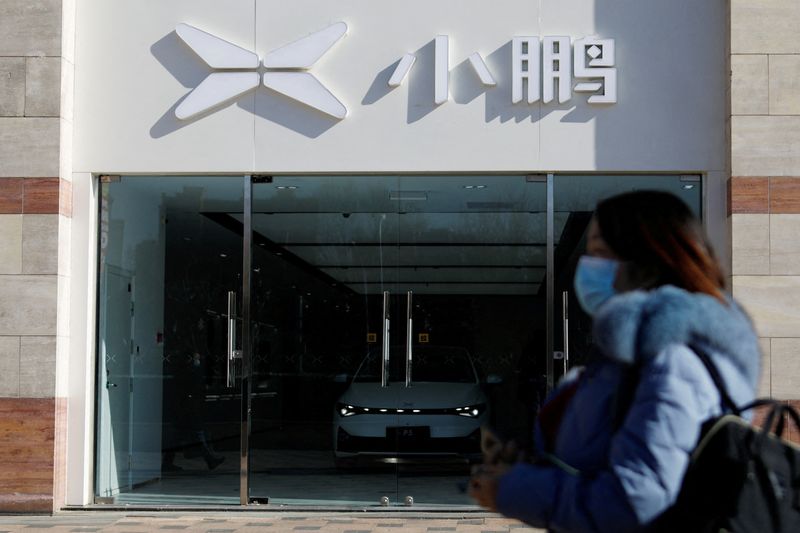By Chavi Mehta
(Reuters) -Xpeng's U.S.-listed shares jumped more than 11% on Friday after the electric-car maker priced its latest G6 sport utility vehicle about 20% lower than Tesla (NASDAQ:TSLA)'s Model Y in China.
The pricing comes at a time when U.S. automaker Tesla's sales in the world's largest market for electric vehicles were likely to hit another record quarter.
While Warren Buffett-backed BYD, dominates the China's EV market, an analyst with China Merchants Bank International Securities said Tesla's sales could increase 13% from the previous three months.
China was the biggest market for Tesla's Model Y electric sport utility vehicles in the first quarter, helping it become the world's top selling vehicle during the period.
Xpeng (NYSE:XPEV) is pinning its hopes on the new SUV to help turn around its sales after it reported lackluster deliveries in May.
"We believe that the G6 will become the best-selling model in Xpeng's history," said Hanyang Wang, analyst at 86Research Ltd.
The price of Xpeng G6 starts at 209,900 yuan ($28,882.01), compared with Tesla Model Y whose starting price is 263,900 yuan.
"We do admit the G6 pricing strategy created a unique product segment of BEV (battery electric vehicle) SUV at the 200,000-230,000 yuan range, which attracts customers wanting an entry level mid-sized BEV SUV but cannot afford a Tesla model-Y or Xpeng P7i," Citigroup (NYSE:C) analysts wrote in a note.
Analysts expect 10,000 monthly unit sales of the SUV. Beijing's 520 billion yuan tax break for new energy vehicle purchases is also expected to boost demand.
Tesla is expected to report as early as this weekend record global deliveries of 445,000 vehicles in April to June, according to average estimates of nine analysts polled by Refinitiv.
"As a comparable model for the G6, we anticipate Tesla's Model Y will soon experience another round of price reduction in China, which will slightly impact on Tesla's vehicle margin in the second half of this year," Wang said.

Shares of Xpeng's peers Li Auto and Nio (NYSE:NIO) rose 2.1% and 5.2%, respectively.
($1 = 7.2675 Chinese yuan renminbi)